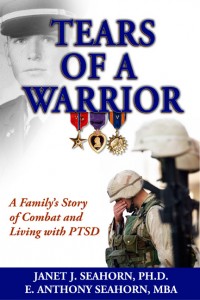Jan
10
THE MAN I DIDN’T KNOW
Filed Under Combat PTSD, Family, PTSD, Tears of a Warrior, The Man I Didn't Know, Veterans, Vietnam Veterans, War | Comments Off on THE MAN I DIDN’T KNOW
by Janet J. Seahorn, Ph.D
This is the title of a book sent to us by Marie Leduc, the wife of a Vietnam Veteran who co-wrote it with retired naval aviator, Art Schmitt, Ph.D. Later Art got his degree in psychology. The Man I Didn’t Know: The Stories of Wives and Families of Vietnam Veterans who suffer from “Post Traumatic Stress Disorder”, is a collection of stories and poems written from the perspective of those most directly impacted by combat.
The articles are heartrending and the poetry will literally place you in the hearts and souls of the writers. While reading through the many tales I found several statements pretty sobering and thought provoking. Some statements gave me an unusual viewpoint of war, especially the last few wars we have fought and left without a clear victory. I have included several small snippets of some of these in this blog.
- “The United States did not lose the war in Vietnam, the South Vietnamese did. The last American troops left Vietnam on March 29, 1973, (however, the last flight out wasn’t until 1975). We did not lose the war… we stopped fighting” (p. 16). Recently, December 15, 2011 we raised the last American flag as we leftIraq. I wondered if years down the road we will describe this last conflict in a similar manner.
- “There are two kinds of PTSD… acute, which is treatable, and Chronic, which is manageable”. More Vietnam veterans, per capita, suffer from chronic PTSD than from any other war. The reasons for this is unknown, but it may be that it was an unpopular war and the veterans were not welcomed home” (p. 16).
- In another article, To Answer Your Question, by Ed Ruminski, the veteran is trying to explain to his son what combat was like, how time stopped and actions were both quick and in slow motion. How he had to be “constantly watching, listening to my senses”. In the end he merely states, “They call it war, and to answer your question son, yes, I have killed somebody. What I was unaware of was how by that process I just described, I was also killing myself” (p.19). Sadly, many of our Iraq and Afghanistan troops are returning with parallel sentiments.
 These are just a few statements from the book. The various writings describe the wounds of the minds, how scary it can be for a family to negotiate the many behaviors and emotional ups and downs of their beloved warrior, how a mother must learn to cope with the death of her son while visiting the Vietnam Wall to stay connected, and how PTSD affects children when their under developed minds and bodies leave them vulnerable to actions which they may never fully understand. In the end, this last quote by Jacqueline McVicar (p. 85) really says it all.
These are just a few statements from the book. The various writings describe the wounds of the minds, how scary it can be for a family to negotiate the many behaviors and emotional ups and downs of their beloved warrior, how a mother must learn to cope with the death of her son while visiting the Vietnam Wall to stay connected, and how PTSD affects children when their under developed minds and bodies leave them vulnerable to actions which they may never fully understand. In the end, this last quote by Jacqueline McVicar (p. 85) really says it all.
“His fight was in Vietnam,
Ours is the Vietnam in him.”
Ordering information: ISBN: 1-4196-2452-0 www.booksurge.com 1-866-308-6235
Dec
5
THE VA BENEFITS ROLLER COASTER
Filed Under Tears of a Warrior, Veteran Benefits, Veterans | Comments Off on THE VA BENEFITS ROLLER COASTER
by Janet J. Seahorn, Ph.D
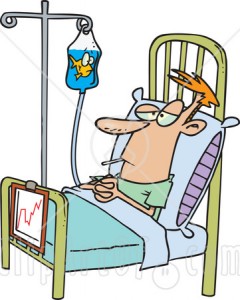
Holy Smokes! My brain is reeling like an out of control roller coaster. You know the experience, the climbing to the top of the coaster mountain knowing it is going to plummet to the bottom once there. At times it feels stimulating, and then there’s the “I think I am going to lose my stomach” sensation. Well, this scenario somewhat describes how I left after listening for two hours to a presentation on VA benefits. I went with Tony to learn more about how best to negotiate the system and the process. Honestly, it was quite interesting, although, I must admit, I didn’t understand everything the speaker was telling the audience, nor could I keep up with all the “do this not that”, “go here, not there”, “know this exception or else”. Yikes, no wonder many of our veterans and their families get confused. It truly takes an expert in the organization to help lead you successfully through the government maze of regulations.
Following are a few items I gleaned from the session that perhaps some of our readers will find helpful. Keep in mind that the VA is concerned with treating the whole person where other government organizations are mainly focused on the medical issues.
- 1. First, whether you like it or not you will need to have and be somewhat comfortable using a computer since all forms and many interactions are now on-line. If you are one of those who are somewhat computer illiterate, grab a friend or family member to help with the process. A few websites that can be very useful: www.Ebenefits.va.gov (this site gives you access to your vet information) www.Healthmil/PDBR (this is the site for getting the process underway to leave the military).
- 2. Something many veterans do not know is that they are eligible for problems that occur as a result of their major injury or condition. These are called “Secondary Problems“.
- 3. For new vets leaving the military, some States have places were individuals can go and get all of their needs, benefits, sign-up forms, and medical tests done in one setting. Not only does this speed up the process, it cuts down on the frustration of visiting several places over a span of several weeks.
- 4. As you put in for your benefits, understand that it takes a minimum of ten days to be processed before the information shows up on the Ebenifits website, and this only occurs if the VA has all of the needed medical records.
- 5. Now this leads us to getting those medical records…Go and Get Them YOURSELF. If you rely on your doctor’s office sending this information to the VA once it is requested, you may be waiting as long as six months before they get around to sending it. This is not the VA’s fault. Since doctors offices do not get reimbursed for doing this task, some are not very eager to move it forward in a timely manner.
- 6. Understand that once your benefits begin, the government will send your funds to your bank using Direct Deposit. If you don’t have a bank, they will send you a debit card. There will no longer be any CHECKS written to an individual. Understand it is YOUR responsibility to give the VA the correct bank routing number or account number, or address. If you move and forget to send them you new address, you will probably have trouble getting your funds. If your benefits begin on Feb. 1st, your first funds will come through until March 1st. Many organizations work on this type of a timeline.
- 7. If you were a Marine stationed at Camp Lejeune (www.lejeune.usmc.mil) before 1986, immediately go to their website to obtain information on filing a claim regarding medical conditions stemming from a toxic waste situation in the area. This also applies to our current vets who served in Balaud, Iraq where it was common practice to burn their waste, including plastic water bottles. The results of being exposed to the toxic smoke can cause colon cancer, lymphoma, respiratory problems… Down the road similar consequences may come from exposure to the sands in Iraq and Afghanistan.
- 8. Also, did you know that many of our veterans are eligible for a VA home loan that may be far better than those offered by the FHA. This was an AHA for us. Check out www.homeloans.va.gov or www.hopenow.comwebsites or call the Homeownership Preservation Foundation at 1-888-995-HOPE (4673).
- 9. And last, it is very important that every veteran is aware of the processes for filing a claim, receiving benefits, etc. Be sure to read EVERY piece of information or mail that comes to you. Don’t put it aside and think you will get back to it later. Read it immediately. Answer any and all phone calls from your VA centers as soon as possible. And be persistent as long as you take responsibility for what you need to do to help process your claims and benefits.
After listening to so much information and needing a Tylenol or Latte badly, I came to the following conclusions:
One – every vet needs to take the appropriate responsibility for getting his needs met. Blaming won’t get the job done; being proactive has a better chance of success.
Two – and please don’t scoff at this because I am sometimes tempted to do so, try to believe in the VA’s motto, “Grant if you can, only deny if you have to”. If you feel the person you are working with isn’t doing enough, ask for someone else to assist you. Often times getting a fresh pair of eyes and ears can make a huge difference. What I saw and heard today confirmed that there are many individuals in the VA organization who are incredibly dedicated to making a difference to our country’s veterans. We know of many and are grateful for their efforts.
Good Luck and take your patience pills – dealing with any huge organization, especially the government will require an abundance of endurance.
Nov
1
Tribute To A Soldier
Filed Under Combat PTSD, Presidential Unit Award, PTSD, Tears of a Warrior, Tribute, Troops, Veterans, War, World War II | Comments Off on Tribute To A Soldier
by Deborah A Maffucci
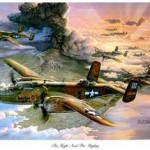 This blog was sent via an e-mail letter last week. Deborah has kindly allowed us to share her comments with our readers.
This blog was sent via an e-mail letter last week. Deborah has kindly allowed us to share her comments with our readers.
Growing up, my knowledge of my dad’s war experience went no further than, “My dad was in WW II and I think he was stationed in England.”
On advice from my therapist, I decided to go to the attic and find my dad’s discharge papers. Oh my!!! After hours of online research (which is amazingly complete) for the first time I realized that my dad was right in the “thick of WWII”
He was 22 years old in 1942 when he joined the USAAF to fight in the European Theatre in WW II. He received four medals and a Presidential Unit Citation. He was at Normandy, the Battle of the Bulge and Rhineland. He was a Technical Sgt. in the 8th Air Force Fighter Command, 66th Fighter Wing, 339th Fighter Group, 504th Fighting Squadron. Oh my stars !!! He was a soldier.
I needed to read about what it is really like to be a soldier. I found your book, “Tears of a Warrior” at my local library and read it almost in one sitting. I couldn’t put it down. A whole world of understanding and compassion for my dad has been felt in my heart. A sense of awakening and belief that I will feel much more true joy and happiness and conquer my life long feelings of anxiety, fear and depression.
I realize now that I am trying to heal from the secondary PTSD that comes from living with a combat warrior and not knowing it. There was no time for my dad to heal because he died in 1969 from cancer. I realize my dad’s war experiences must have been the true source of our family struggle. It wasn’t because my dad didn’t love us, or because he would rather spend all his time at the firehouse, the VFW or the Elks Club, he was a warrior. I understand why he loved being a fireman, he was draw to the danger, why he abused alcohol, to block out his war memories, why he yelled so much, he was a sergeant. All my childhood memories make sense now. Your book has put my life story in prospective. Thank you for that long awaited insight. !!!
My dad was a combat warrior and I never knew it. I just want to give him the biggest hug right now and tell him how proud I am of him. From 1945 until Dec 7th 1969 when he died, he was fighting WWII in his mind and body.
You have truly helped me to understand what happened to my dad in the war and what he must have struggled with after the war. I hold him in a new and special place in my heart.
God bless you,
Debbie Maffucci
P.S. I borrowed your book from the Jesup Library in Bar Harbor, Maine. I believe it was only hours after you so graciously donated a copy to our town. I have recommended it to my counselor to use in her therapy work.
Oct
15
DOES ANYONE CARE?
Filed Under American Patriotism, Tears of a Warrior, Today's War, Trauma, Troops, Veterans, War | Comments Off on DOES ANYONE CARE?
by Janet J. Seahorn, Ph.D
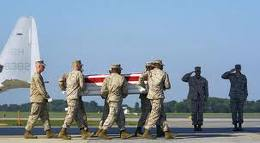
It’s been on the news and in the papers – the latest studies about our military personnel serving in Iraq and Afghanistan.
The studies done by the Pew Research Center were based on two surveys between July and September (Denver Post, Oct. 6, 2011). One survey focused on military individuals who are currently on active duty along with those who have served but are no longer active. The second survey polled over 2000 adults who had never been in the military.
What disturbed me most however was not the report that many of our troops are either “ambivalent” or do not feel the current wars in Iraq and Afghanistan were “worth the sacrifices”. Nope, what was most unsettling for me was that adults polled who had never served in the military did not give much thought to those serving in combat. Many felt that those who volunteered to serve their country knew what they were getting into.
- 84 percent of these modern-era warriors say the general American public has little or no understanding of the problems they face, with 71 percent of the public agreeing.
- Many Americans agree that since the terror attacks in the U.S., the military and their families have made more sacrifices than the general public. But even among this group, only 26 percent say this gap is “unfair,” while 70 percent say that it’s “just part of being in the military”. (msnbc.com staff and news service reports updated 10/5/2011 5:50:40 AM ET 2011-10-05T09:50:40)
I guess this last research bullet just didn’t sit well with me. Probably because as a family we have lived the aftermath of combat, lived with the ghosts of the dead and dying, and had to cope with the nightmares, anxiety attacks, and flashback memories. It isn’t that any vet or his/her family wants empathy for his/her service, but to read that 70% believe that “it’s just part of being in the military” seems like a really insensitive statement.
I am not sure that any person, young or old, has a true idea of what war and combat is about. I am pretty sure, on the other hand, that none of them had any clue that what they do, see, and experience in hell will stay with them for a lifetime. That the war they fought on foreign soils will follow them home and into their living rooms, relationships, and careers. Few of them had any clue that these things were “just part of being in the military”.
Perhaps, since Vietnam, too many Americans have been too far removed from the sacrifices of war. During WWII everyone on the home front had to give up something for the war. Now, most give up nothing, while those few who serve give up far too much. The very least we at home can do is give two or three minutes each day to say a short prayer for those and their families who serve. Just remembering our military will certainly make us, not merely better people, but a more thoughtful, compassionate nation.
Aug
2
RIVER FISHING – GREAT THERAPY
Filed Under Combat PTSD, Events, Fishing Therapy, Healing, Healing Waters, Peace, PTSD treatment, Tears of a Warrior, Veterans | Comments Off on RIVER FISHING – GREAT THERAPY
by Janet J. Seahorn, Ph.D

There are few things in life that can take your mind off trouble more than a special day on a beautiful river. Last week the Platte Valley Trout Unlimited Chapter located in Saratoga, Wyoming had the opportunity to take a group of wounded veterans from the Cheyenne VA Medical Center on just such a trip. The excursion began with an amazing barbecue put on by members of the chapter and local volunteers. It seemed like almost everyone in the community wanted to contribute something from ice cream to napkins. Children from 4-H served food, helped clean up, and simply added their youthful energy to the evening.
The next morning began early with breakfast which proved there is nothing wrong with a warrior’s appetite. Then off to the river, which is a logistical bussle of shuttling boats, equipment and people to one of the river’s launch site. Vice-President and project coordinator of the Trout Unlimited Chapter, Steve Hays, was a bundle of nerves as he wanted to make sure every detail of this event went perfectly. Again, all the shuttle drivers, helpers, boats, and guides donated their time and efforts to making the fishing trip an amazing experience.
The guardian angels of fishing trips could not have arranged a more beautiful day for a float. The water was dazzling with light, birds seemed to have arranged their chorus of unique songs for entertainment, and even the fish were cooperative. Private angling lessons were given throughout the day which proved to be quite successful for most of the veterans. Two warriors demonstrated their angling abilities by catching ten or more fish. Since the North Platte River has been running at flood stage since mid-May, having the water and its inhabitants somewhat normal was a real gift.

Yet, the most significant result of the float trip was its therapeutic benefits to the wounded warriors. Most of the group had not known each other before the overnight trip. What they found from these precious, short twenty-four hours is recorded in their comments below:
- I can’t believe people care that much about us.
- I had no idea other veterans continue to struggle with PTSD; I thought I was just weak.
- I really needed this… it’s been a long time since I felt I could relax and feel safe.
- The whole experience has been a true blessing.
- This is what makes healing happen.
- That was one of the best days of my life.
Formal therapy can and is very helpful to many military individuals healing from the trauma of combat. But it is only one ingredient of the recipe. Being with others who have suffered similar wounds, knowing that others care and appreciate their sacrifices and experiencing the beauty and serenity of nature offers one a sense of peace, safety, and the faith that perhaps some divine presence may truly be keeping watch over them.

Yep, Fishing Therapy… the new, ground-breaking, effective line of defense against the scars of war.
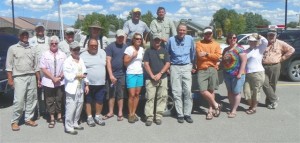
Jun
30
“Remember Me”
Filed Under American Patriotism, Family, Fourth of July, Tears of a Warrior, Troops, Veterans, War | Comments Off on “Remember Me”
Jun
25
GOOD GRIEF
Filed Under Combat PTSD, Good Grief, Life, PTSD, Tears of a Warrior, Trauma, Veterans, War | Comments Off on GOOD GRIEF
by Janet J. Seahorn, Ph.D

Good Grief – sounds like words Charlie Brown would proclaim when something illogical occurred. When you think about it, he was not that off base using this phrase, Good Grief, because grief, at least the first phase of mourning, is anything but logical. Experiencing grief is not a rational process. It is gut wrenching and emotionally challenging. Grief by its very definition: “deep sadness or mental distress caused by loss, remorse, or bereavement” (Webster’s Dictionary) leaves the sufferer questioning if he/she will or can survive the agony.
Too many of our military men and women have had to bear the loss of friends. Yet, due to circumstances of the battlefield, they cannot take the time, energy, or effort to fully move through the grieving process. Each individual must be able to carry on without the luxury of grieving. In war, there is always another job to do, a new battle to wage, and perhaps even further loss. Add PTSD to the grief process, and the mountain to healing becomes even steeper to climb.
It is little wonder that our young and old warriors return from combat with unresolved issues. Many of these problems center around the grief process or more accurately, lack of resolving the immense weight of unsettled pain. If we were to look at the grief process described by Elizabeth Kubler-Ross’ five stages – denial, anger, bargaining, depression, and finally acceptance – it is pretty easy to identify where & why many can get permanently stuck in one phase or another. To complicate matters, real grief processing requires going in and out of the various stages for a long period, often times skipping phases only to be plunged back to that pit at a moments notice.
Families of vets often state that their loved one is in denial; denial that they are suffering, denial that there is anything wrong with them, and denial that they can handle the situation without help. Then there is anger; anger at the government who sent them to fight, anger at the enemy, anger at a civilian society that has no clue of what they went through, and most devastating is anger at themselves for not being strong enough to overcome the trauma of combat. As far as bargaining, most warriors don’t seem to bargain for much of anything except for a break to live without all of the emotional baggage.
What we see a great deal of, when and if a veteran reaches this next phase is depression. This is the phase that may be the most difficult to get through and endure without resorting to self medication. For many the moments between denial, anger, and depression can be small; often they are mixed together in a whirling mass of chaos. Achieving acceptance is seldom a permanent stage, a stage which many of our wounded warriors never attain even for brief moments.
Dealing with Post Traumatic Stress is dealing with grief. It is not easy; it is not quick; it definitely is not logical; and it is not a journey that any one of us should have to go through alone. Is there such a thing as Good Grief? Truthfully, I am not sure any grief is good, but I have witnessed and have personally gone through mourning that is doable. To be perfectly honest, I am not sure grief made me stronger, but it certainly made me more compassionate and gave me a deeper appreciation of each ordinary day where I can breathe freely without feeling my heart breaking.
And that in and of itself is pretty darn GOOD.
Jun
17
LIVING STORIES
Filed Under Combat PTSD, Life, PTSD, Tears of a Warrior, Trauma, Treating PTSD, Veterans, War | Comments Off on LIVING STORIES

It came in the mail, a book from a professor at Eastern Kentucky University, The Journal of Military Experience. Most publications I get from universities are on topics that deal with academia, you know – ways to teach literacy, how the brain works, and other research topics. This book was different. It wasn’t written by a bunch of stuffy professors based on their special investigative studies. Nope, this book was written by a group of young veterans who had served overseas and were trying to reintegrate into civilian and academic life. Needless to say, many of the stories and poems were composed with emotions that were still raw from combat.
The authors were students in Professor Travis Martin’s writing class. The purpose of his unique course was to help with the initial assimilation phase of university life. “Some of the authors write about the unspeakable things that they have been asked to do, or more accurately, that have been done to them. But some focus solely on that work of translation, making sense of a warrior culture and the mentality of an individual who has been bred, trained, and conditioned by a society in desperate need of a few willing to sacrifice for the many (Introduction).”
The theme in many pieces confirmed how challenging returning from war was for these young warriors. They wrote about who they were before combat and how they had changed from the experience. How seeing friends die before their eyes, how being shot at on a regular basis, how tough it was to determine who would live or perish depending on their interpretation of an approaching car or a family on the side of the road, how these battle experiences made their time during and after conflict more demanding. One marine described “every day someone else would die or get seriously injured. One of my friends lost his legs from a roadside bomb right outside our front gate at 0200 in the morning (Guy Robert Lubin, p. 6-7)”.
Yet, in spite of all of the horror, all the wounds both physical and emotional, not one individual regretted serving his country. Not one person wished he/she did not complete a tour of duty overseas. What some did question, though, was when or if they would ever be free from the fiends of warfare. One author acknowledged “you truly stop caring. You don’t want to shoot, but you will. You won’t think about it, until you get home that is (Bradley Johnson, p. 53)”. He continued, “While you fight and suffer and struggle, you are also changing, becoming someone totally different. The harsh and violent realities of war forces you to change. Emotions are an inconvenience — they distract you — making you feel and think instead of react. A distracted soldier is a dead soldier. My evolution was a great thing on the battlefield, but it is just as much a bad thing when you get home (p. 53)”.
In this book, there are profound words and stories from those few who have given so much for freedom in our country and lands far away. They are “living stories” from real warriors. They ask nothing but a smidgen of understanding and a bit of healing when they return. For every vet past, present or future let us value the sacrifice and honor the service never failing to remember how all gave some, while some gave all.
Jun
13
WHAT YOU DON’T TALK ABOUT
Filed Under Combat PTSD, PTSD, Tears of a Warrior, Trauma, Treating PTSD, Veterans, War | Comments Off on WHAT YOU DON’T TALK ABOUT
by Janet J. Seahorn, Ph.D
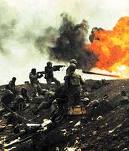
It was something I was not going to do – view the HBO special War Torn.
I tried watching it almost two months ago but didn’t last ten minutes before I had to turn off the DVD. It had too many reminders of suffering associated with the aftermath of combat. Yet, last night I decided to see what it had to say about PTSD, since this has been our mission for the last twelve years – including research & writing.
Throughout the movie there seemed to be a very powerful, recurring theme, a theme of silence. Silence made the veteran a prisoner of his/her own memories. It did not matter what branch of the military a person served – Army, Navy, Marines, Air Force, National Guard…
The role one played during combat was quite expansive, overwhelming individuals who served in all facets of war. From the front lines of combat, to medics, nurses, body baggers, and any person who had participated in the tensions of war. What was similar, however, was the manner in which the experiences were seared on the mind, body, and spirit. This mark of trauma often left the individual with a sense of hopelessness, apprehension, torment, and sometimes shame.
Then, to add insult to injury, when the vet came home… home to a place that he/she would feel safe and normal, returning to civilian life sometimes added greater stress. Many family members and friends simply wanted the vet to be like he was before he left for war. Become normal again.
Perhaps these words might offer some understanding of what isn’t talked about and isn’t said when a war veteran returns home.
THINGS YOU DON‘T TALK ABOUT
By Janet J. Seahorn, Ph.D.
What don’t you talk about,
You survivors of war?
You, who are suppose to be brave,
To be fearless and bold.
You, who have witnessed the best of mankind,
And the worst.
You, who daily endured death;
Who lived with the unknown
The woundedness of others
And the scars within yourself.
What don’t you talk about,
You warriors of battles recent and old?
The panic attacks that grip your throat,
The night sweats from vivid dreams;
Anxieties that propel you to a universe
That seems out of control.
Anger unprovoked and dangerously destructive.
The self-medication… attempts to silence
The voices and erase the gory scenes.
What don’t you talk about
You, who cry with Silent Screams?
You, who cannot seem to find your words,
For words are too simple, too clean
To describe your distress
To others who have no concept of war.
For what you don’t talk about
Your brother and sister warriors understand.
They have been to that place of darkness.
They know – and in that knowing
They are there to walk beside you
If only in spirit.
Perhaps these fellow casualties
Make talk a bit less necessary.
Jun
6
I AM
Filed Under Civilian life, Combat PTSD, Life, Love, Peace, PTSD, Tears of a Warrior, Treating PTSD, Veterans | Comments Off on I AM
by Janet J. Seahorn, Ph.D
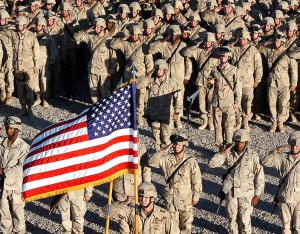
For many of our military men and women who return from combat there is a burning question; a question that asks, “Who am I?” Who am I now that I have seen so much, done so much, and heard the despair of so many? For some there may be a feeling of unworthiness, a gnawing numbness of pain. They seek answers that seem to elude them; answers hidden somewhere between the battle fields and the present.
Every person wants to be validated in the world: to be seen, to be heard, to be felt. Returning from war often leaves a person with a sense of invisibility. A feeling that adds to the question, Who am I … this other person who wanders a world that once was so familiar now feels like a drifter in a land that may not seem recognizable.
Know this one simple truth, You are worthy of love. You are worthy of goodness. You are worthy of a life of joy and personal fulfillment. The trick is not that others view you as worthy. You must believe this for yourself. “You are responsible for your life”. And only You can create and live such a life. You alone must believe that you are worthy to live a good life and a life of meaning.
Combat can take one’s sense of self, but it does not take away one’s need to be a part of something, some mission, some worthy cause. The heartbreaking reality for many veterans is returning from battle with a frame of mind of being untrained to live in civilian society. You will need to work hard to find your path in this world after combat. No one can do this for you. It is a journey each individual will need to travel and seek out.
Some doubt they are up to the challenge. This is purely self deception. If you could be trained to perform all of the incredible feats of a skilled warrior, you certainly have the strength, intelligence and willpower to succeed in becoming your very best “I AM”. The gift has always been yours. It was bestowed on you at birth. The outside world may work hard to convince you otherwise. Some days it may be tempting to give up the search. But carry on. In your hands lies the power to choose.
Choose to accept your very best I AM.




